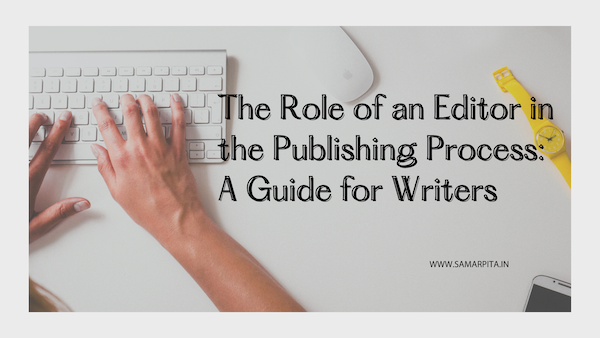As writers, you may have completed your manuscript and feel it’s ready for publication. However, it’s important to understand that a manuscript can benefit greatly from the input of an experienced editor. An editor can help you identify and address areas where your manuscript may need improvement, and ultimately increase its chances of success. In this article, we’ll explore the role of an editor in the publishing process and provide you with a guide on how to work with one effectively.
Also Read: How Can You Make The Most Of Your Writing Critique Group
The Importance of an Editor
An editor plays a critical role in the publishing process. They are responsible for ensuring that your manuscript is polished, free from errors, and engaging for readers. An editor can provide you with valuable feedback on your manuscript’s structure, plot, character development, and writing style. They can also help you identify areas where your manuscript may be lacking, such as pacing, tone, or clarity. By working with an editor, you can ensure that your manuscript is the best it can be before it’s published.
The Different Types of Editors
There are different types of editors, each with a unique role in the publishing process. A developmental editor focuses on the big-picture elements of your manuscript, such as plot, character, and pacing. They may make suggestions for revisions and provide feedback on your manuscript’s structure. A copy editor, on the other hand, focuses on the details of your manuscript, such as grammar, spelling, and punctuation. They may also check for consistency in style and tone. A proofreader is responsible for the final review of your manuscript, checking for any errors that may have been missed in previous rounds of editing.
Also Read: The Benefits of Working with an Editor on Your Manuscript
Finding the Right Editor for Your Manuscript
When looking for an editor, it’s important to find someone who has experience working in your genre or field. They should also have a good understanding of your target audience and be able to provide feedback that will help you engage that audience. You may want to ask for references or samples of their work to ensure that they have the skills and experience necessary to edit your manuscript effectively.
Working with an Editor
Once you’ve found the right editor, it’s important to establish a clear line of communication. Discuss your goals for your manuscript, as well as any concerns or areas of focus you want the editor to address. You may also want to establish a timeline for the editing process and agree on a set of deadlines. It’s important to remember that editing is a collaborative process, and the editor’s goal is to help you make your manuscript the best it can be.
Also Read: Brand Yourself As Authors Before Your Book Launch
Responding to Feedback
When you receive feedback from your editor, it’s important to approach it with an open mind. Remember that the editor’s goal is to help you improve your manuscript, and their feedback is intended to be constructive. Take the time to review the feedback carefully and consider how you can apply it to your manuscript. You may also want to discuss any areas of disagreement with the editor and come to a resolution that works for both of you.
In conclusion, an editor plays a critical role in the publishing process. By working with an editor, you can ensure that your manuscript is polished, error-free, and engaging for readers. It’s important to find the right editor for your manuscript and establish a clear line of communication throughout the editing process. Remember that editing is a collaborative process, and the editor’s feedback is intended to help you make your manuscript the best it can be.
Read my ebook WRITE. EDIT. PROMOTE. to learn the basics about becoming an author – from writing your own book, to editing your first draft, and to promoting your book yourself! You can also read my ebook How To Write A Story Effectively and learn some valuable lessons about how a story can go from average to extraordinary. This book is part 1 of the series.
In fiction, I have two short stories for children in an ebook called Bedtime Stories.
Follow me on Instagram and Twitter. Send me an email at editor@samarpita.in for editing, content, coaching, or social media planning.

